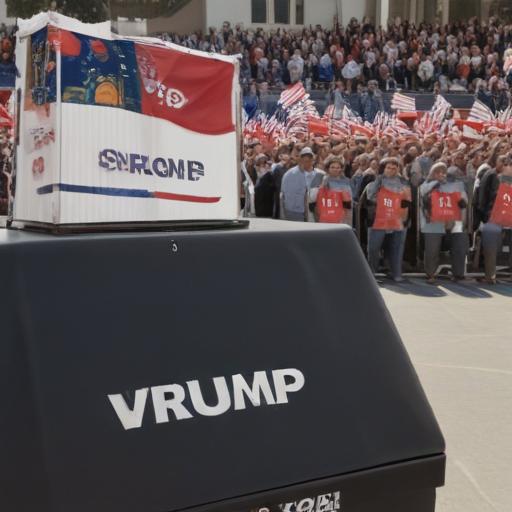President Donald Trump is leveraging the ongoing crisis in Los Angeles to amplify political divides and assert control over dissent, capitalizing on the tension between federal immigration actions and California’s liberal governance. With protests erupting against Trump’s mass immigration raids, the President has made provocative remarks, suggesting he would support the arrest of California Governor Gavin Newsom and labeling demonstrators against his policies as “insurrectionists.” Trump has emphasized a strict stance on law enforcement, indicating he is prepared to invoke an archaic law to suppress civic protests.
In response, Governor Newsom and California Attorney General Rob Bonta have initiated a lawsuit challenging Trump’s deployment of 2,000 troops to Los Angeles, claiming he is overstepping his authority. This situation marks a significant escalation in a standoff that reveals deep ideological rifts between the federal government and a predominantly Democratic state. As Los Angeles experiences unrest, the protests have been mostly peaceful, albeit escalating amid the presence of federal troops, with local law enforcement downplaying the scale of the crisis.
While Trump paints a picture of a society in turmoil that requires military intervention, Newsom has urged Californians to avoid violence and maintain composure. The political landscape is reminiscent of past confrontations between federal authority and state governance, heightening concerns about the implications of Trump’s actions. The involvement of federal troops without the governor’s consent harkens back to rare instances in history and suggests a possible precedent for future conflicts.
As this tense situation continues to unfold, it raises questions about the long-term impact on Trump’s legacy, with the potential for continued unrest and further polarization among the electorate. The dynamics in Los Angeles reflect the complicated relationship between federal and state powers, as both sides grapple with their respective positions in this high-stakes political theater.
